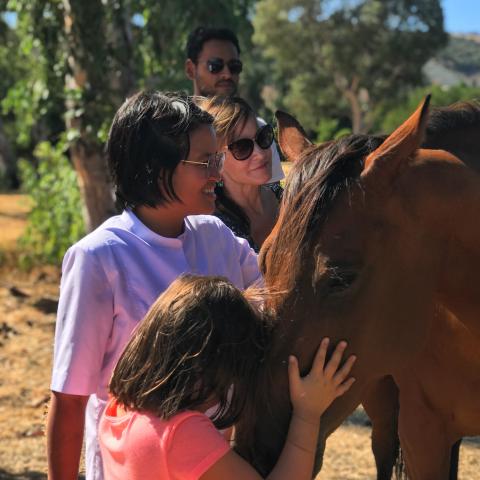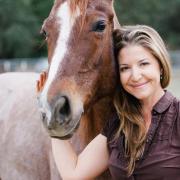
By now, you might feel like a caged animal. Well, you kind of are. We are human animals in captivity. COVID-19 put most of the world in a surreal lock-down experience, and our lives slowed down beyond recognition. I’ve been referring to it as The New Abnormal. I use these words to remind myself (and others) that we are experiencing a global trauma. The mental health symptoms that so many millions of us are struggling with have a lot to do with how we have endured an entirely abnormal living situation. There is nothing normal about it. And, we are having normal reactions and feelings to this abnormal phenomenon.
You might be on the front lines of the virus, saving lives, doing essential work, parenting remote learners. Or, maybe you are leading a remote team of people, laying some off, supporting folks who are limping along and under extraordinary stress. Perhaps you are on the front lines of your own process with much more time and space to sit with yourself, realizing you are lonely, having quite an active thinking brain, and lack of structure and busy days have you feeling lost, restless, and questioning everything. When we start comparing hardships, we create a wedge in our human connection.
The pandemic has been a giant level set, an experience that creates a knitting together of our humanity. Some of us had never walked into a grocery store with empty shelves. And, now we have. Some of us had not lost our access to social contact or place of worship or routine of self care. And, now we have. Others of us had not feared for our physical safety or health. And, now we have.
This time of hardship is an invitation to notice and find awe, strength, and innate connection in our human herdship. This virus woke us up, sharpened all of our senses, and snapped us back into mammal awareness. We’ve become more aware of our need for self-care, all day, every day. This new abnormal asks us to think much more about how we stay healthy and protected. We can feel our own needs.
The crucible of this experience--the tight container of it--has not only made us more aware of our own needs, it has asked us to be more disclosing and forthright with others. We’re opening up. I’ve had the honor of coaching, counseling, and teaching people for over two decades and I’ve heard the low hums of loneliness in the workplace, the ways that we can feel isolated and alone in our own families, how we can be busy and surrounded by people yet feeling unseen, our truest selves invisible to even those who we love and who love us.
We’ve always needed each other. We’ve spent a few generations forgetting just how much. Consider yourself reminded! So now that we know we need each other, what can we do to lean into it? How can we ask for help and support? How can we reach out and offer care and love more consistently to our herd?
Here are a few simple tips:
- Slow down how you interact.Adjusting your pace allows you to see and feel those moments when someone is in need.
- Ask the hard questions.
- Answer more honestly.When people ask you how your day is going, try sharing the truth. It’s okay to say out loud that you’ve had a lousy day. You might get support that you need. You also might create a safe space for someone else to be honest about their struggles.
- Pick up the 200 pound phone.It can feel impossible to make a phone call when we are caught in an isolation trap. But it isn’t impossible. Sometimes just naming how hard it is can make it that much easier. Push yourself to reach out and tell someone you are struggling. Or, think of someone you know who might need some friendship and call them.
- Servant leadership is a mindset that goes beyond focus on individual success and instead seeks a greater good. If you are leading a family or a team, consider surveying your herd. How is everyone doing? Is anyone falling behind? How can the group carry those in need? Make space in the group to have an honest check in. Level the playing field and open up about your own struggles so that people can leave their fear or ego at the door.
It seems like interdependence would be an innate skill set for social mammals like us. After all, lone wolves don’t live as long and people in isolation develop all kinds of self-destructive behavior. But We also need to model it for our kids or those who we are teaching, mentoring, or leading.



The views and opinions expressed in this post are those of the author(s) and do not necessarily reflect those of MomsRising.org.
MomsRising.org strongly encourages our readers to post comments in response to blog posts. We value diversity of opinions and perspectives. Our goals for this space are to be educational, thought-provoking, and respectful. So we actively moderate comments and we reserve the right to edit or remove comments that undermine these goals. Thanks!